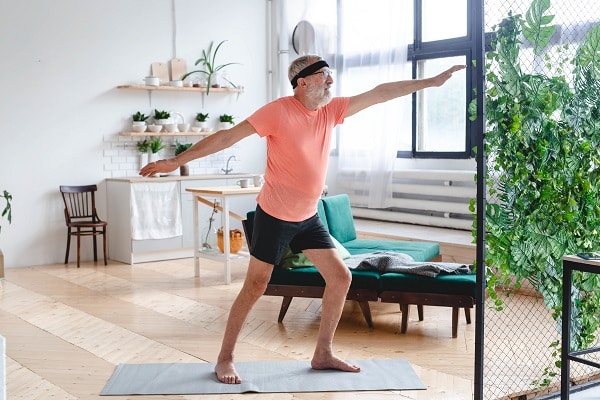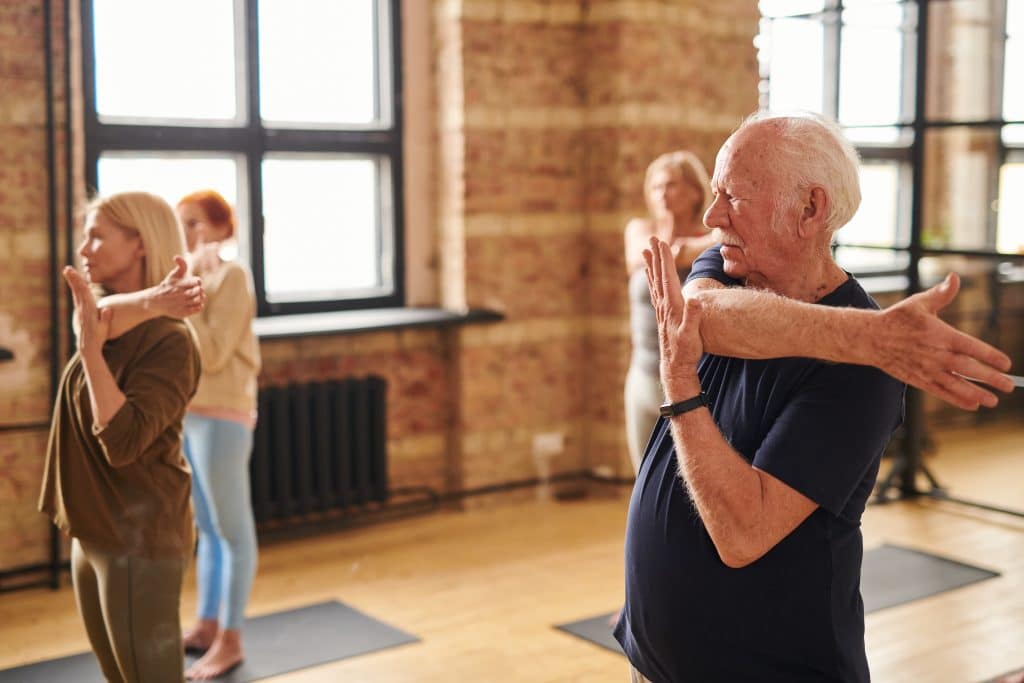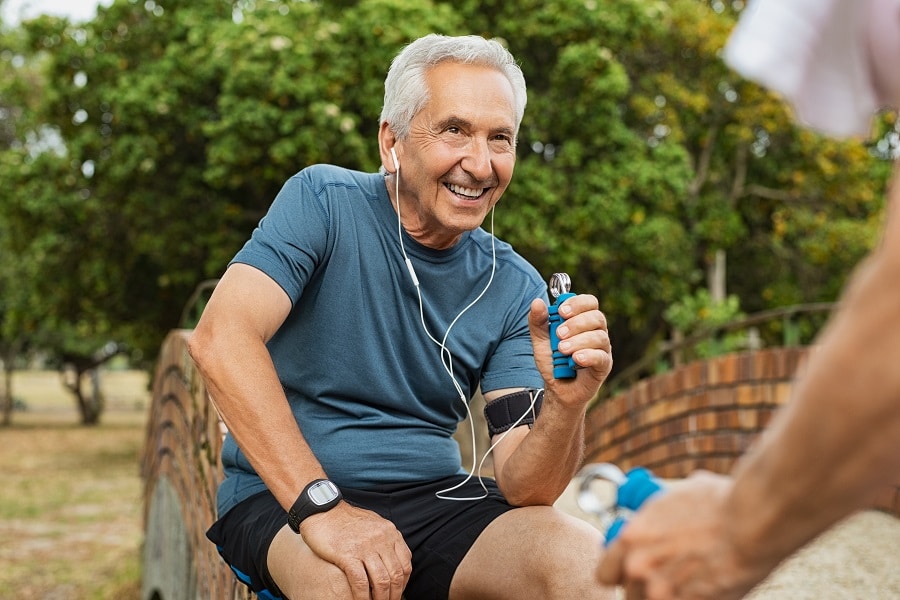As you age, your bodies go through a lot of changes. You may not be able to do things you could do when you were younger and may need more help with everyday activities. Your bones may become more fragile, and your skin may become thinner and less elastic. You may also have a hard time seeing or hearing as you used to. Fortunately, there are ways to stay healthy as you age. One of the most important ways to stay healthy is to keep moving. Keep reading to learn more! This article will discuss the benefits of being active as a senior.
Contents
- Promotes Heart & Cardiovascular Health
- Physical Activity Can Help Manage Weight
- Staying Active Helps You Stay Independent
- Helps You Sleep Better and Feel More Energized
- Physical Activity Reduces The Risk Of Injuries & Falls
- Staying Active Promotes Brain Health
- Helps You Feel More Confident and Happy
- Start Reaping The Benefits Of Physical Activity!
- Related
Promotes Heart & Cardiovascular Health

Heart disease is the leading cause of death for men and women in the United States. However, there are steps that everyone can take to reduce their risk of developing heart disease. One of the most important is to get regular physical activity.
Physical activity promotes heart and cardiovascular health by helping to lower blood pressure, improve cholesterol levels, and manage weight. Cardiovascular exercise such as walking or swimming is especially beneficial because it works the large muscles of your body and gets your heart pumping. As a result, regular exercise is one of the best things you can do for your heart. And, since heart health is so important, it’s essential that everyone make an effort to get active regularly.
Physical Activity Can Help Manage Weight

Physical activity is essential in managing weight and achieving a healthy weight. When you are physically active, your body uses more energy (calories), which can help you maintain a healthy weight, lose weight, or prevent weight gain.
A healthy weight is crucial because it can help reduce your risk for certain diseases and conditions, such as heart disease, stroke, high blood pressure, type 2 diabetes, and some types of cancer. Being at a healthy weight can also help reduce stress on the joints and improve mental health. There are many ways to be physically active. You can do moderate-intensity activities like walking, gardening, or taking the stairs.
You can also do vigorous-intensity activities like running, swimming, or playing tennis. You don’t have to do these activities all at once—you can spread them out throughout the day. And you don’t have to do them every day to see benefits. Even if you only do them a few times a week, you can still make progress toward a healthier weight. So get moving and start reaping the benefits of physical activity today!
Staying Active Helps You Stay Independent

Independence is a very important aspect of life. It allows you to live your life the way you want to live it and make your own choices. However, it can become more difficult to maintain your independence as you age, which is why it is so important to stay active. Regular exercise helps to keep your mind and body sharp, and it also helps to reduce the risk of falls and other accidents.
In addition, staying active can help you stay socially connected, which is another essential factor in maintaining your independence. There are many ways to stay active, so find an activity you enjoy and make it a part of your daily routine. By staying active, you can help ensure that you can maintain your independence for many years to come.
Helps You Sleep Better and Feel More Energized

How often have you been told to exercise more, yet you feel too tired to even consider it? It may seem counterproductive, but regular exercise is one of the best things you can do to improve your sleep. Exercise helps promote deep, restful sleep and boost energy levels during the day.
A lack of sleep can lead to fatigue, making it challenging to stay active. And a sedentary lifestyle can contribute to many health problems, including obesity and heart disease. Furthermore, exercise releases endorphins, which have mood-boosting effects. So not only will you sleep better and feel more energetic, but you’ll also be in a better mood. And that’s a win-win-win!
Physical Activity Reduces The Risk Of Injuries & Falls

Doctors often encourage patients to be physically active to reduce the risk of injuries and falls. There are several reasons for this. First, physical activity helps to improve muscle strength and balance, which can help to prevent falls by making it easier to recover from a stumble or slip. Furthermore, strong muscles help to protect bones and joints from the impact of a fall.
Second, physical activity helps increase bone density, reducing the risk of fractures, especially in older adults. Finally, physical activity helps improve coordination and reflexes, which can help you react more quickly if you stumble or lose your balance. In summary, being physically active can help reduce the risk of injuries and falls by improving muscle strength and balance, increasing bone density, and improving coordination and reflexes.
Staying Active Promotes Brain Health

Staying active and engaged is essential for maintaining brain health as you age. According to recent research, even moderate exercise can help to improve brain function and protect against cognitive decline. Mental activities such as reading, puzzles, and learning new skills can also help keep the mind sharp.
Brain health is essential for overall well-being. A healthy brain helps you to think clearly, make good decisions, and manage stress effectively. Additionally, a healthy brain is vital for maintaining physical health.
Researchers have found that people with dementia are more likely to experience falls and other injuries and that cognitive decline can lead to an increased risk of chronic conditions such as heart disease and stroke. As you age, protecting your brain health becomes even more critical. Fortunately, there are many things you can do to keep your mind sharp and your brain healthy. So get out there and stay active to promote brain health!
Helps You Feel More Confident and Happy

Most people are familiar with the physical benefits of exercise, but what about the mental benefits? Exercise can help improve mood, reduce stress, and boost self-confidence. For example, one study found that just 20 minutes of moderate exercise significantly improved mood in people with depression.
Other research has shown that exercise can help to reduce stress levels by releasing endorphins, which have a calming effect. In addition, regular exercise can increase self-confidence by helping people to achieve their fitness goals. Whether you’re looking to lose weight, build muscle, or simply get in shape, exercise can help you to feel more confident and happy. So next time you’re feeling down, lace up your sneakers and go for a run – your mind will thank you for it.
Start Reaping The Benefits Of Physical Activity!
If you aren’t already getting regular physical activity, it’s time to start. Many options are available to suit any fitness level, whether you prefer low-impact exercises such as yoga and swimming or high-intensity workouts like running and weight lifting. So find an exercise routine that works for you and get moving – the benefits will surprise you!


